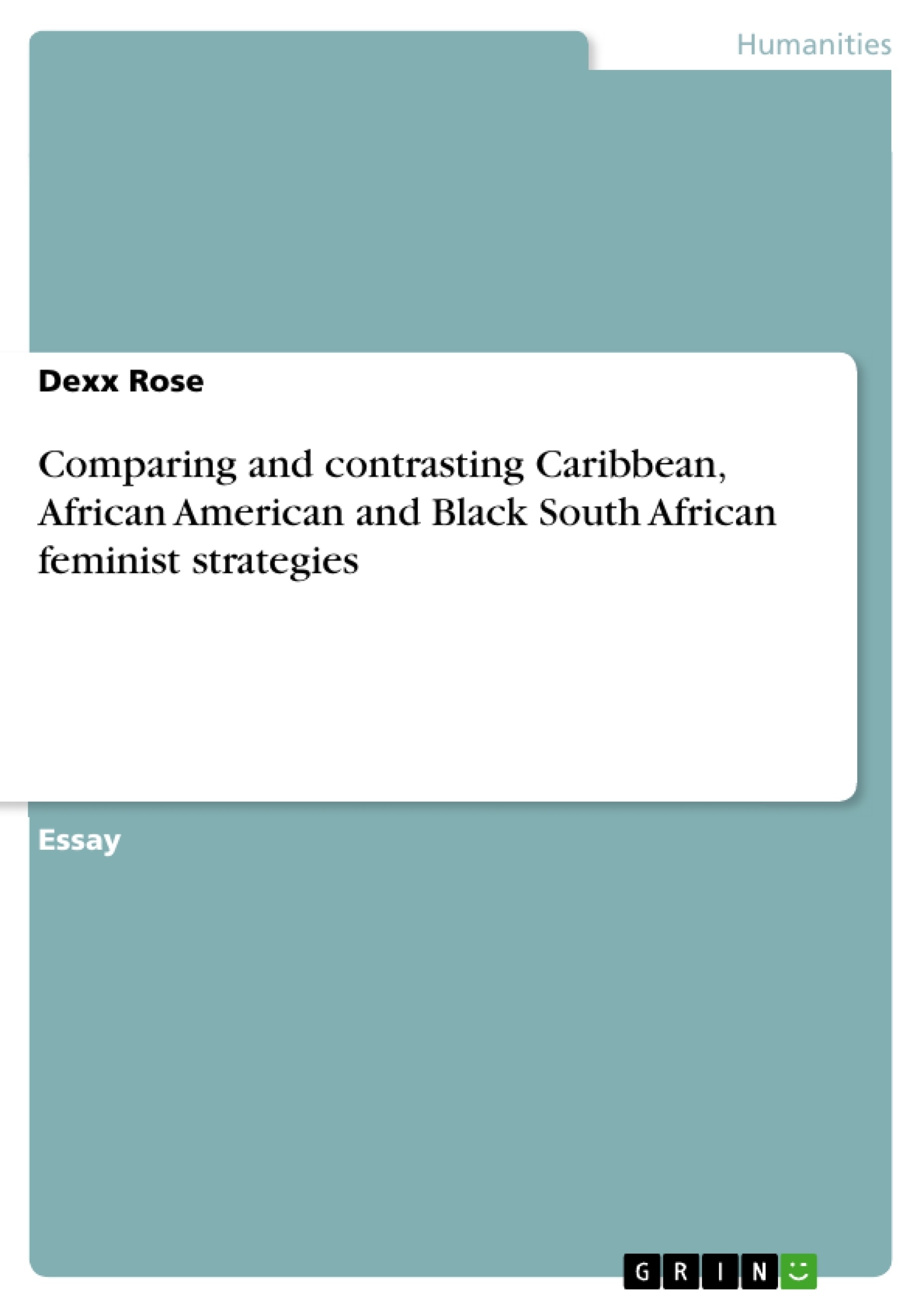This piece compares and contrasts Caribbean feminist strategies (past and present) to those employed by African American and black South African Women in their respective movements from a historical context.
For the last two decades women have organized movements against violent institutions that oppress them. They created simple strategies and bonds that brought them together through their shared and lived experiences and have come to challenge political, cultural and historical policies that oppress women. With the rise of different feminist branches worldwide such as; Caribbean feminism, African American feminism and Black South African feminism, women began to rely on each other for support and strength to challenge the institutional notion of patriarchy that they were subjected to.
Black feminism exploded in the 1960s in response to gendered issues and racism that stemmed from the civil rights movement. “Problematising race and exposing how racist practices complicate all other social relations of power is a central organising principle of black feminist theorising” (Barriteau, 2003). While these three branches of feminism developed in different time periods and differ in theory and objectives, the strategies used and implemented by women in these movements are quite similar.
Inhaltsverzeichnis (Table of Contents)
- Gender, Political Activism and Mobilization
- Caribbean Feminism
- History and Development
- Key Figures and Organizations
- Critiques of Caribbean Feminism
- African American Feminism
- Roots and Early Movements
- Strategies and Activism
- Expanding Focus: Sexuality and Reproductive Rights
- Black South African Feminism
- Origins and Key Themes
- Structure and Agency
- Scholarly Contributions and Critiques
Zielsetzung und Themenschwerpunkte (Objectives and Key Themes)
This text examines the evolution and impact of feminist movements in the Caribbean, the United States, and South Africa. It aims to highlight the commonalities and differences in their strategies, ideologies, and challenges. The text analyzes how these movements have addressed issues of gender, race, and power within their respective contexts.
- Intersectionality of gender, race, and colonialism
- Strategies for mobilizing and empowering women
- The influence of historical contexts on feminist movements
- Critiques of different branches of feminism
- The legacy and ongoing relevance of feminist activism
Zusammenfassung der Kapitel (Chapter Summaries)
- Gender, Political Activism and Mobilization: This introductory chapter sets the stage for the text, providing an overview of the evolution of feminist movements in the Caribbean, the United States, and South Africa. It emphasizes the shared experiences of women across these regions in their struggles against patriarchal structures and colonial legacies.
- Caribbean Feminism: This chapter delves into the origins and development of Caribbean feminism, exploring its historical roots in the region's colonial past and its efforts to deconstruct racial categories and challenge patriarchal dominance. It highlights key figures and organizations that have played a pivotal role in the movement.
- African American Feminism: This chapter traces the trajectory of African American feminism, highlighting its origins in the nineteenth century and its evolution through the Civil Rights movement and beyond. It discusses the movement's strategies for mobilizing women, its focus on intersectional issues, and its impact on the socio-political landscape of the United States.
- Black South African Feminism: This chapter examines the emergence and evolution of Black South African feminism, exploring its unique challenges and strategies in the context of apartheid and post-apartheid South Africa. It delves into the movement's focus on structure and agency, its contributions to scholarship, and the critiques it has faced.
Schlüsselwörter (Keywords)
This text explores key concepts and topics related to gender, race, colonialism, feminist activism, and social movements. It examines the work of Caribbean feminists, African American feminists, and Black South African feminists, highlighting their strategies, challenges, and contributions to the broader feminist discourse. The text analyzes the intersectionality of gender, race, and power within these movements and sheds light on the historical, social, and political contexts that have shaped their development.
Frequently Asked Questions
How do Caribbean, African American, and Black South African feminism compare?
While they developed in different contexts, they share similar strategies in challenging patriarchy, racism, and the legacies of colonialism.
What is a central principle of Black feminist theorizing?
A central principle is problematizing race and exposing how racist practices complicate all other social relations of power (intersectionality).
What was the catalyst for the explosion of Black feminism in the 1960s?
It was a response to gendered issues and racism that persisted even within the broader civil rights movements.
What unique challenges did Black South African feminism face?
It had to navigate the specific oppressive structures of apartheid while simultaneously addressing gender inequality and agency.
What are the focus areas of Caribbean feminism?
Caribbean feminism focuses on deconstructing racial categories, historical colonial impacts, and deconstructing patriarchal dominance in the region.
- Quote paper
- Dexx Rose (Author), 2015, Comparing and contrasting Caribbean, African American and Black South African feminist strategies, Munich, GRIN Verlag, https://www.grin.com/document/350643



